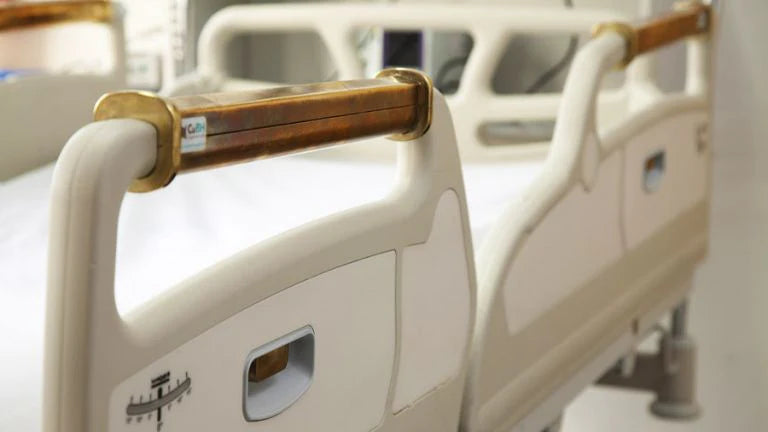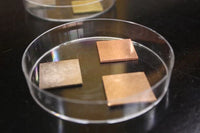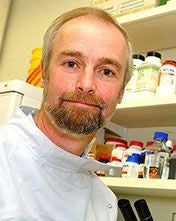
EPA designates copper the only solid antimicrobial material.
Stephen L. Johnson, head of EPA when copper was designated as the first, and so far only, solid antimicrobial material approved for germ-killing use in various environments, including hospitals. Since then EPA studies show copper kills Covid viruses, as well as other disease-causing germs.
Pure copper starts killing germs instantly by touching them. The EPA confirms pure copper kills many disease germs, including the Covid virus.
Using Copper to Stop Deadly Diseases
Copper even kills antibiotic resistant bacteria such as MRSA. The EPA urged hospitals to use copper for "touch surfaces" such as patient bed rails, tray tables, doorknobs, and faucets. In hospitals tested, hospital-acquired infections dropped dramatically.

Copper kills over 200 different pathogens including cold, flu, and Covid viruses.

How Does Copper Work?
Scientists have identified ways copper kills germs like bacteria and viruses. Copper has high electrical conductance. When a copper surface touches a germ microbe, it disrupts the electrical balance in the microbe. This pops holes in the membrane around the microbe and immediately destroys its ability to reproduce or pass on its genes. The microbes starts dying instantly.
Copper "Zaps" germs electrically, hence the name CopperZap.
Some of the scientists whose research inspired the idea of CopperZap:

Professor Bill Keevil
A leading researcher on the germ-killing property of copper, he used a high-power microscope to show that viruses start to die instantly when touched by a copper surface. Director of the Environmental Healthcare Unit in the School of Biological Sciences, University of Southampton.

Dr. Christopher Rensing
Demonstrated that copper starts killing germs in less that a minute after direct contact with a copper surface. (Subsequent research shows the killing starts instantly.) Coined the term “contact killing” for the effect of copper on microbes. He was at the University of Arizona.

Dr. Gregor Grass
Investigated how copper surfaces kill microbe germs like bacteria, viruses, and fungus. Institut für Mikrobiologie der Bundeswehr.


